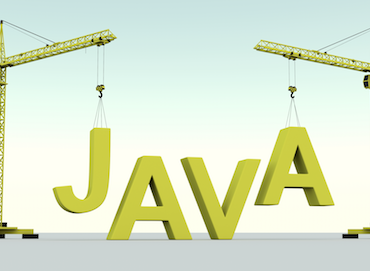Java EE Finds Open Source Home

Profit_Image/Shutterstock
The enterprise version of Java has landed at an open source consortium a month after Oracle Corp. revealed it would release the programming language to outside software developers.
Oracle announced this week it would turn over Java Enterprise Edition to the Eclipse Foundation, a nonprofit corporation formed in 2004 and an outgrowth of a software project originally created by IBM in 2001. The company said its decision resulted from consultations with IBM and Red Hat, the other key contributors to the Java EE platform.
"Oracle, IBM and Red Hat are collaborating on an ongoing basis to refine an approach that we can collectively support," David Delabassee, a software evangelist at Oracle, noted in a blog post announcing the move.
Red Hat (NYSE: RHT) welcomed the software platform's swift transfer to the open source foundation. "This is a pretty important, first, tangible step in moving Enterprise Java forward and it’s encouraging to see Oracle moving ahead at a rapid pace," Rich Sharples, Red Hat's senior director for product management, reacted in a separate post.
"Java EE is an established technology that many organizations depend on for their business critical applications," Sharples added.
Oracle (NYSE: ORCL) said Tuesday (Sept. 12) it plans to re-license technologies associated with Java EE and a related server technology called GlassFish to the Eclipse Foundation. Under the foundation's auspices, the company also said it would demonstrate the ability to build an implementation of Java EE that is compatible with components in the current version of the software platform.
Delabassee said Oracle wants to move quickly on those and other steps in parallel with the completion of Java EE 8 "to facilitate a rapid transition" to the open source community. Java EE code is now on GitHub.
Oracle and Red Hat found common ground through a complementary Eclipse Foundation effort dubbed the MicroFile project donated to the foundation last year. Moving Java EE to the Eclipse Foundation would help leverage efforts like MicroFile, Oracle noted.
Launched last June, the Microfile project includes IBM (NYSE: IBM), Red Hat and other Java developers with the goal of aligning Java EE with the development of cloud-native applications. Among the project's other goals is defining a micro-services application platform that is portable across multiple runtimes.
Separately, Oracle announced this week it is joining the Cloud Native Computing Foundation. The move is the latest step in the database vendor's shift to the cloud. Other "platinum" members of CNCF include Amazon Web Services (NASDAQ: AMZN), Google (NASDAQ: GOOGL), IBM, Intel (NASDAQ: INTC) and Red Hat.
Observers interpreted Oracle's membership as tacit support for the Google-developed Kubernetes container orchestration ecosystem, of which Oracle has contributed tooling.
Related
George Leopold has written about science and technology for more than 30 years, focusing on electronics and aerospace technology. He previously served as executive editor of Electronic Engineering Times. Leopold is the author of "Calculated Risk: The Supersonic Life and Times of Gus Grissom" (Purdue University Press, 2016).











